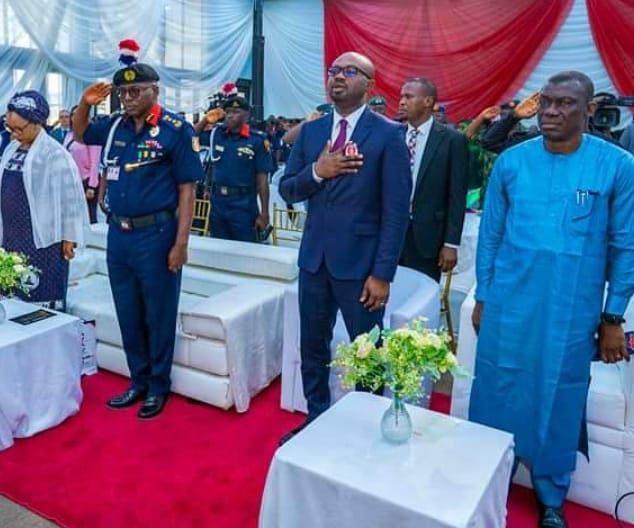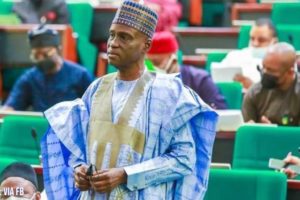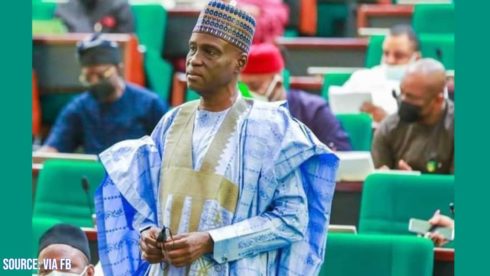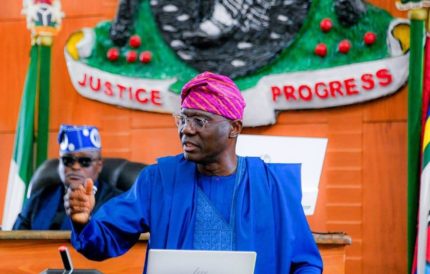In a recent appeal that has sparked controversy, Nigeria’s Minister of Interior, Hon. Dr. Olubunmi Tunji Ojo, has called upon the public to donate funds to help alleviate the dire conditions of the Nigerian prison system. The overcrowding of correctional centers across the country has reached critical levels, with many detainees unable to pay bail and awaiting trial. The Minister’s plea, which has raised concerns among critics, is aimed at reducing the strain on the prison system and facilitating the release of those who cannot afford to pay fines.
Minister of Interior Laments Overcrowding Crisis in Nigerian Prisons
The Nigerian prison system is grappling with severe overcrowding issues, as highlighted by Dr. Olubunmi Tunji Ojo. In a video posted online, the Minister pointed out the dire situation at the Kuje Correctional Center, which was originally built to accommodate 520 inmates. However, it currently houses 682 inmates, and a staggering 70% of them are still awaiting trial. Additionally, over 4,000 individuals remain in custody, unable to pay fines, exacerbating the problem.
Controversial Call for Public Fundraising
The Minister’s appeal for public fundraising to pay the fines of those in detention has ignited controversy and drawn mixed reactions from the public. Critics argue that it is the government’s responsibility to address the issue and that soliciting donations is a way of shifting the burden onto the people. They emphasize that the government should allocate funds from its resources to decongest the prison system, rather than relying on public contributions.
The Minister of Interior‘s Perspective
Minister of Interior, Dr. Olubunmi Tunji Ojo has defended his call for public assistance, emphasizing that a mere 500 million naira is required to settle the fines and alleviate the overcrowding crisis. He has urged companies to step forward and contribute, suggesting that they pay fines on behalf of inmates to reintegrate them into the community. The Minister of Interior believes that collective efforts from various stakeholders, including the private sector, are essential to finding a solution to the overcrowding issue.

Prolonged Pre-Trial Detention Crisis in Nigerian and African Prisons
The issue of a burgeoning prison population in Nigeria and other African nations is a matter of growing concern. Nigeria, for instance, grapples with a prison population exceeding 76,000 individuals, spread across 240 correctional centers. Alarmingly, around 70% of these inmates find themselves in the agonizing limbo of awaiting trial. They face charges, arrest, and detention, but they have not yet had their day in court, either to be convicted or cleared of their alleged offenses.
What makes this situation even more troubling is that Nigeria bears the unfortunate distinction of having the highest percentage of awaiting-trial prisoners in the entirety of Africa. According to the latest report from World Prison Brief, Ghana reports a significantly lower rate of 12.4% for awaiting-trial prisoners, and South Africa’s figure stands at 32.9%. This stark contrast underscores a pervasive issue within the Nigerian justice system, one that raises significant concerns regarding the delay and efficiency of the legal process.
Reports indicate that accused individuals in Nigeria endure astonishingly lengthy periods of pre-trial detention, with some languishing in custody for as long as 12 to 15 years. This extended period of uncertainty runs contrary to the provisions of the 2015 Administration of Criminal Justice Act, as outlined in section 296, which stipulates that the period of remand should not exceed 28 days. The glaring disparity between the law’s intent and the unfortunate reality of the situation underscores the pressing need for legal reforms and improved administration of justice in Nigeria rather than a plea from our government to get assistance from the populace.
A Shift of Government Responsibility?
Critics argue that the Minister of Interior‘s appeal is equivalent to transferring the government‘s responsibility to the people who have long awaited relief from the overcrowded prison system. They maintain that the government, with its capacity and resources, should take the necessary steps to address the issue promptly. Concerns have been raised about the efficacy of relying on public donations when the government’s role in this matter remains paramount.
The Public’s Response
The public’s response to the Minister’s call for fundraising has been mixed, with some expressing willingness to contribute to the cause, while others remain skeptical about the government’s commitment to resolving the prison overcrowding crisis. Many are calling for increased transparency in how the funds will be managed and whether this approach will be a sustainable solution.
Finding a Balanced Solution
As the debate continues, it is essential to seek a balanced solution that addresses the urgent need to decongest Nigerian prisons while ensuring the government upholds its responsibility to provide relief to those affected. The Minister’s appeal serves as a stark reminder of the ongoing challenges within the prison system and the importance of collaborative efforts to find an equitable resolution.
Table of Contents
Discover more from OGM News NG
Subscribe to get the latest posts sent to your email.













